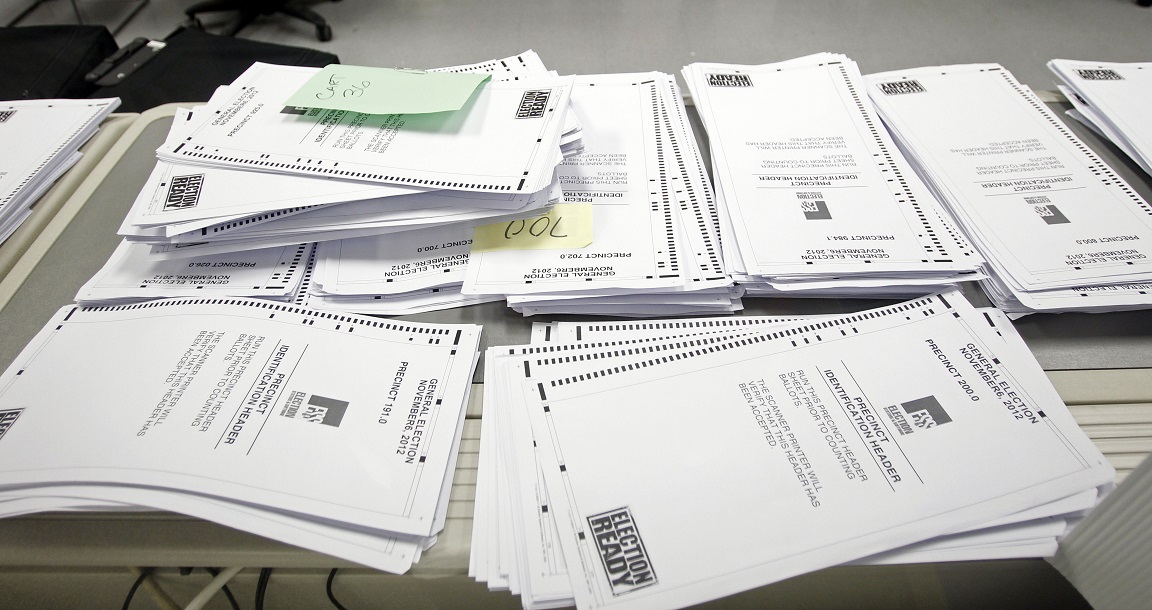Politics
In Wisconsin, missing absentees spur questions and anger

MADISON, Wis. (AP) — The U.S. Postal Service and election officials searched for answers Thursday about why an untold number of absentee ballots never made it to voters in Wisconsin who didn’t want to risk contracting the coronavirus by voting at the polls in the state’s presidential primary.
Here’s what is known and unknown about the ballots:
WHAT’S THE ISSUE
Under a Monday ruling from the U.S. Supreme Court, all absentee ballots sent to voters had to be postmarked by Tuesday’s election to be counted. But many voters said they never got the ballots by Tuesday.
HOW MANY BALLOTS WERE NOT DELIVERED
That’s the big unanswered question. The Wisconsin Elections Commission reported Thursday that nearly 1.3 million absentee ballots had been requested by voters, a record-high number that overwhelmed some local election officials. About 235,000 ballots had not yet been returned as of Thursday. What’s not known is how many of the outstanding ballots were completed by voters and mailed back by the Tuesday deadline. It’s also not known how many of the ballots never made it to voters.
WHERE WERE BALLOTS NOT DELIVERED
A state senator said the Wisconsin Elections Commission told him that the U.S. Postal Service discovered three bins of absentee ballots destined for Oshkosh and Appleton voters that weren’t delivered. Milwaukee’s election chief asked for a formal investigation into ballots requested by city residents around March 22 and March 23 that many voters said were not delivered. Fox Point Village Administrator Scott Botcher said postal workers began returning undelivered absentee ballots to the village about three weeks before Tuesday’s election with no explanation beyond that it might have been a sorting problem in downtown Milwaukee’s post office. There were also reports in other cities around the state from voters who said they had requested a ballot but did not receive them by election day. A Better Wisconsin Together, a liberal group, said it received more than 2,000 reports of missing ballots through a website it created to track them.
LEGAL ACTION
Attorneys monitoring the election have said voters who didn’t get the ballots as requested could have grounds to sue. No lawsuits have been filed to date. Those would most likely come after the results of the election are announced, on Monday, especially if there are close races that could have been swayed by people who didn’t vote because they didn’t receive their ballots. “Everybody is trying to figure out what all of this means relative to the outcome of the election, the validity of the election,” said election law attorney Doug Poland. “We just have to wait and see.” State Sen. Dan Feyen, a Republican from Fond du Lac, has asked the Elections Commission to go to court to ask that the ballots be counted. The commission, comprised of an equal number of Republicans and Democrats, has not decided what action, if any, it plans to take.
WHO IS TO BLAME
Wisconsin’s chief elections official, Meagan Wolfe, said Wednesday that there were no issues with the state’s My Vote website where voters can request an absentee ballot. All requests made through that system were transmitted to local election clerks, who were then tasked with mailing the ballots, she said. That puts the focus on the Postal Service. Bob Sheehan, a Postal Service spokesman, said it is looking into what happened but there’s no way to trace all the ballots that were sent because they were sent first class mail without delivery tracking numbers.
WHAT ARE VOTERS SAYING
They are not happy. One of those who requested an absentee ballot but did not get one, and decided not to vote in person, is the highest-ranking Democrat in the Wisconsin Assembly, Rep. Gordon Hintz of Oshkosh. “I complied with the public health order, as did many of my constituents,” Hintz said. “You either have a once in a hundred year pandemic or you don’t.” Other voters who didn’t get their ballots and then had to vote in person said they were angry at having to risk infection.


George Caplan
April 10, 2020 at 6:21 am
give us the math on the percentage that are usually not returned. Seems to me this story is just some politicians precursor to crying about the election results.